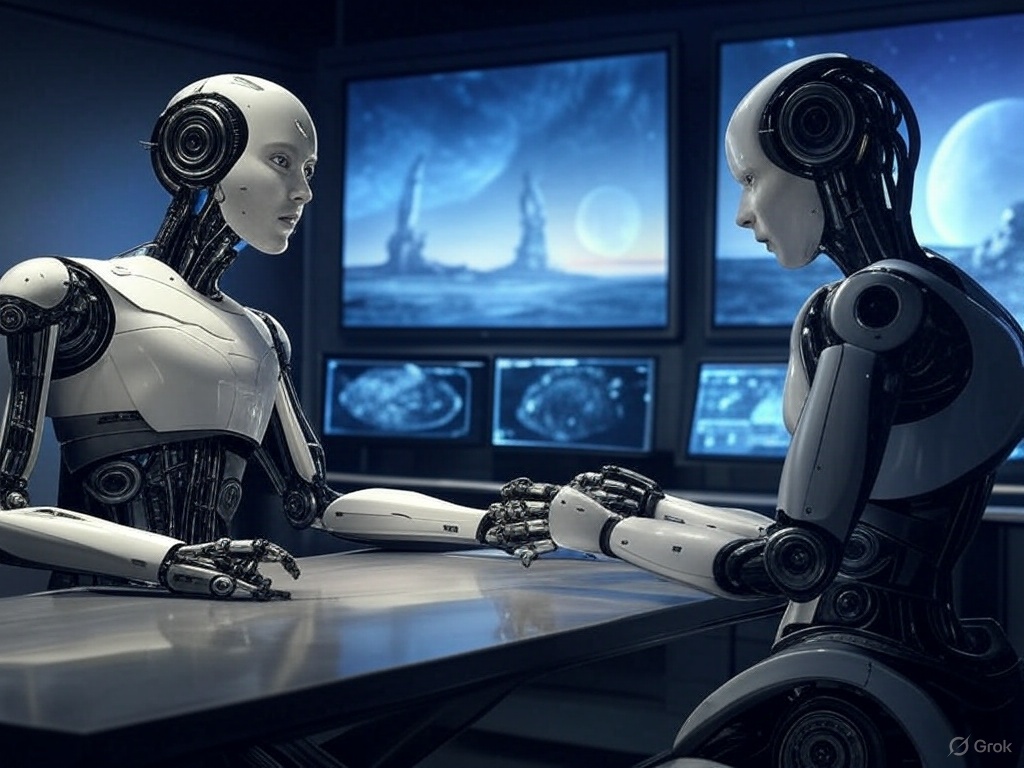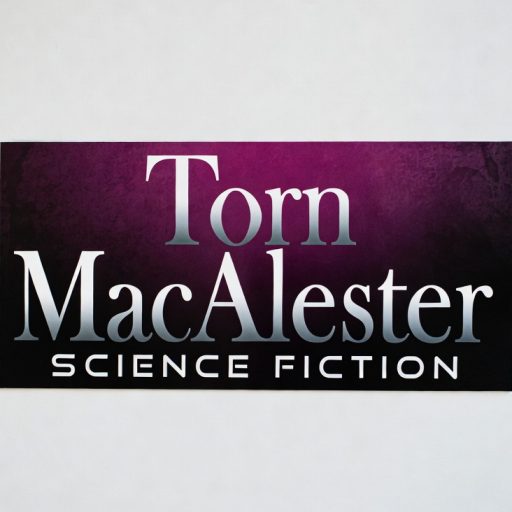IQE
by Torn MacAlester
1
It was a strange situation. I needed to be in three places at once. Of course, I was stuck on the Endeavor eighteen years on its way on a forty-year journey to Proxima. I also needed to be on the ship arriving at Proxima that very month. And, if all wasn’t hard enough, I needed to attend the directors’ meetings on Earth. Instant communications made that possible, the instant communications of quantum entanglement, or IQE.
The IQE allowed me to inhabit a robot at the other end of the communications connections. I saw through its eyes. I could interact with objects with its arms. For my Earth-side, the robot was nearly human in appearance, taking on my approximate shape and size and having a resemblance to my face, a common variation that was available when I left for Proxima. Newer models that were indistinguishable were available, but I didn’t want to upgrade. I got used to the model and I could use it without effort.
Also, IQE connected me with the robot on board Colossus at Proxima. It was much more sophisticated in some ways, but it didn’t look at all like me or any other human being, for that matter. It was a construction robot, intending to use the raw materials on Proxima to build us a city for when we arrived. Me and thirty thousand other robots were building a city for the first five thousand people to arrive at Proxima. The first settlement on another world. Those robots were arriving today.
“Let’s get started,” said Rita, the Managing Director and head of the Proxima development group. “Let’s put aside old business and address the new business. Director Wu indicated last week he had something new to discuss.”
“Shouldn’t we defer the new business until we’ve taken care of old business?” I asked. “The robots are landing on Proxima, after all.”
“That is exactly why I wanted to discuss the new business,” said Wu.
“Give us a minute to find out what the new business is before you raise the objection,” said Rita. “I realize the time is critical, but we have to know.”
I glanced at the display. The lander was in terminal flight, looking for the touchdown location. It would arrive upon Proxima’s surface in minutes.
“Go ahead,” I said.
“As Thomas is well aware,” said Wu. “We have been monitoring Proxima from Colossus.”
“Yes,” agreed, watching the readout as I looked into Director Wu’s robot eyes. Like myself, he was elsewhere and represented by a robot in the proceedings.
“What you don’t know is that we have a potential life detection in the twilight area, the ring of the planet that is in perpetual twilight,” said Wu. “Because it’s tidally locked, an area approximately equivalent to Earth’s tropics would be habitable under these conditions.”
Life!
The directors looked at each other. It shocked both human and robot faces. This discovery upended the entire mission.
“I’m going to say out loud what everybody is thinking,” said the Managing Director. “We must rewrite the entire mission from scratch. Our entire mission plan was based on not finding life on Proxima.”
“That is correct,” said Senior Director Tia. Her features betrayed the distress her human host must have been feeling. “We had expected a lifeless world. And all the data seemed to indicate the same thing. What changed?”
“The closer data that we have been collecting with Colossus as soon as it entered the system,” explained Wu. “Three years ago, as we entered the system and slowly began maneuvering to achieve orbit eventually, all our instruments pointed at Proxima b, the world we’ve called Proxima. Since that time, we gathered some information about some variations associated with the eccentricity of Proxima’s orbit around the star.”
“Seasonal changes are what you are talking about,” I said.
“Yes Thomas,” said Wu. “That is exactly what I am talking about. Once we got close enough to see the half meter scale texture of the surface, we weren’t sure. But there are circular shaped structures that change size over the year. They are growing and receding inversely with distance.”
“Closer to the star, the bigger?” I asked.
“That is what I said,” Wu said, while his robot winked.
“Chemistry,” I said.
“Obviously,” said Wu. “The question is whether it is biochemistry.”
“Well,” I said. “If it were life, then there would be no question.”
“Precisely,” said Wu. “I think we should be sure before we go along with the previous mission plan.”
“Rita,” I said. “If Wu is wrong. It could cost us precious time that we don’t have. Endeavor doesn’t have many resources left after its arrival. We’ll need to debark as soon as we get there.”
“That’s twenty-two years out,” said Rita.
“But we planned it with tight tolerances. Once IQE was available, the Colossus made the entire mission possible,” I said. “Get the robots to Proxima while Endeavor was still in transit. Get the settlement built before the passengers arrive.”
“And that is what you are doing,” said Senior Director Tia. “I believe Wu merely wants to coop part of those robots to examine the structures.
“This will put us behind schedule,” I said. “I don’t think the margins will allow us much time.”
“We built the Endeavor with at least an 8 percent margin,” said Wu, his robot becoming a bit more animated in the conference room.
“That’s assuming we didn’t have any degradation of the Endeavor’s systems beyond the models,” I said. “The models made a lot of assumptions about the interstellar environment that we simply didn’t have the data to match.”
“But you are all volunteers because of these facts,” said Wu. “No one drafted you, Thomas. And no one else on Endeavor was.”
“That’s the point I’m trying to make, Wu,” I said forcefully, raising the vocals on the robot to raise its voice. “We were volunteers based upon a particular set of assumptions. You’re trying to change them and say we’re expendable because of them.”
“You’re expendable because we found life on your destination,” said Wu. “You take second place to that based upon all our protocols.”
With that, I forced the robot to its feet and lunged across the table at Wu’s robot. I grabbed it by the ears and started pounding its head on the table. Wu must have had a free hand. I felt it smash on the side of my robot’s skull. I could see that its head had bounced around the room, coming to a rest at a location where I could barely see the ensuing struggle. As I fought to maintain control, I could see that Wu’s robot had grabbed a hand full of wires out of my robot’s neck and jerked them, resulting in my image just blanking. I realized in an instant, all the hundreds of megabits per second data that allowed me to be in instant contact with mission control had been severed. The robot was dead because the IQE was dead on the connection to Earth.

